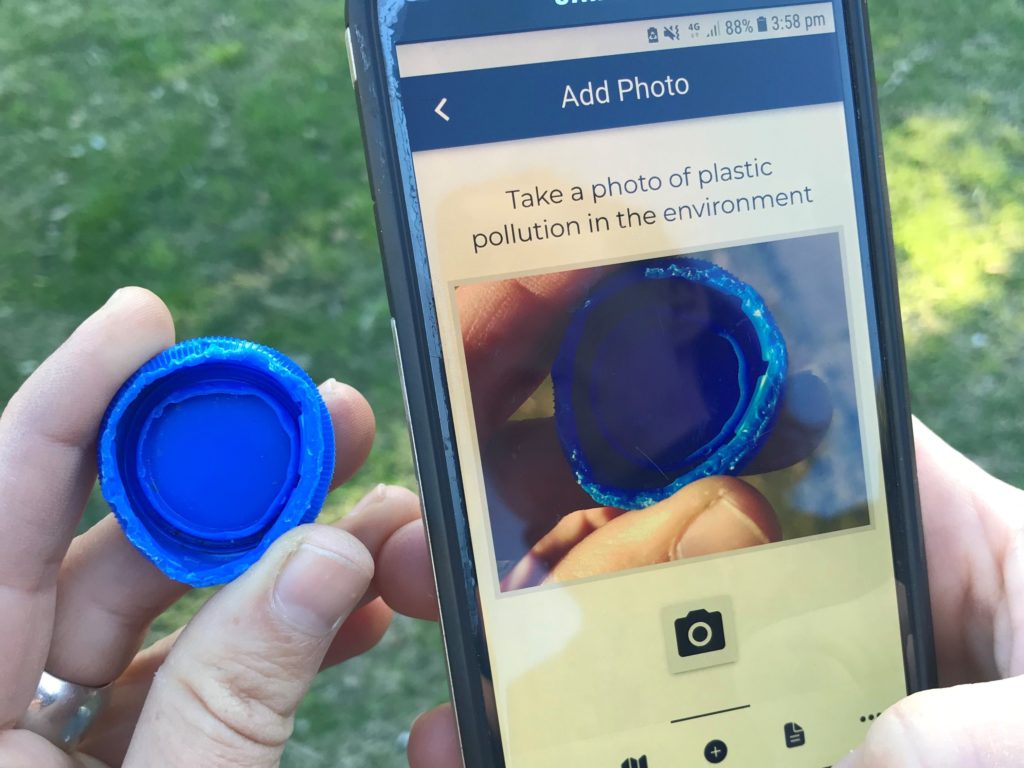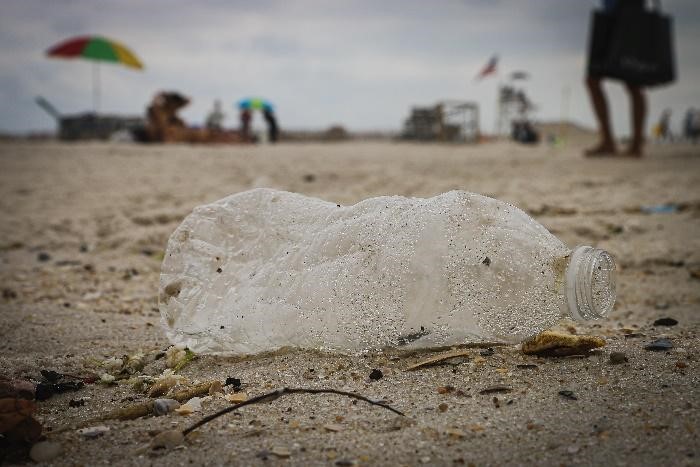
Rubbish app: upload photos of plastic pollution to the Earth Challenge 2020 app.
There are trillions of pieces of plastic estimated to be floating in our oceans. When you add land and our coastlines, there is a magnitude more plastic in the environment. But we don’t know exactly how much is out there.
With your help, we can find out! It’s easy through your mobile device. All you need is the Earth Challenge 2020 app.
Photos of rubbish not a load of rubbish
Using the free Earth Challenge 2020 app, you can upload images of pollution when you see it – no matter where you are. Whether you’re walking along the beach or going for a stroll in your neighbourhood (following social distancing and safety measures in your area), use your phone and upload a snap of any rubbish that you see.
This isn’t about capturing your best ever selfie. Or a buzzworthy photo. Your photos will be of trash after all! But every photo you upload will support the fight against plastic pollution.
Your images will feed into a global database to provide scientists and global governing bodies with information on all things rubbish. This data includes where it’s found, the different types, and how much there is.
To request a transcript please contact us.
Uploading your images to the Earth Challenge 2020 app is easy!
Uniting to protect the environment
The app will bring you together with thousands of people from across the globe. You’ll be part of a citizen science effort to generate plastic pollution solutions. This project uses leading methods for data collection – like ours – to measure plastic pollution.
In Australia, 75 per cent of the rubbish along our coastlines is plastic. Research also shows the majority of plastic pollution from our oceans ends up back on land where it becomes trapped along our beaches.
This project will build on our research analysing what rubbish there is on land versus the seafloor. It will inform future research projects and assist local authorities to develop targeted waste management strategies. All to reduce the impact of pollution on the environment.
The Earth Challenge 2020 app will expand our datasets to paint a picture of the plastic pollution problem worldwide.

Our research is addressing where, what and how marine debris ends up in our oceans and on land. Credit: Brian Yurasits
A plastic pollution revolution
The more people using the app, the more we will learn about plastic pollution. We will get a better idea of the types of rubbish ending up on our streets, in our waterways, on our beaches, and in our oceans. We know the detrimental impacts plastic pollution has on marine life, the environment and human health. Using the app will highlight what needs more attention to generate solutions and tackle plastic pollution.
If it’s safe to do so in your neighbourhood, put any rubbish you find in the bin or recycle it. This will reduce the amount of litter in the environment.
Download the Earth Challenge 2020 app today and put plastic pollution science in your hands. Contribute to this global effort to learn how much – and where – our trash is found in the environment. The app is also addressing air quality to build a safer and healthier environment.
Other important citizen science projects can be found at the Australian Citizen Science Association too.
Global partners addressing global issues
Earth Challenge 2020 is an initiative with leading partners the Wilson Center, a U.S.-based international think tank, the U.S. Department of State’s Eco-Capitals Forum (ECF), and the Earth Day Network.
It is a citizen science project, which means the science is in the hands of everyone – like you! The app’s goal is to connect, build, and enable global communities to leverage the power of technology and collaborate in scientific research to drive meaningful change. For plastic pollution, the app is establishing the first global baseline of how much plastic pollution there is.
The team is partnering with the Atlas of Living Australia and international groups such as United Nations Environment Programme, Citizen Science Asia, the Group on Earth Observations (GEO), and many more.
Together, we can reduce plastic pollution.


31st August 2020 at 11:31 am
try to recycle as many things as you can because there are many animals in danger.
27th August 2020 at 12:19 am
It would be very useful to be educated on how we can begin to avoid using plastic in our lives.. and how to recycle all the different types of plastic that we continue to be exposed to.
23rd August 2020 at 12:40 am
Plastic pollution can also enter underground watercourses such as at Mt Gambier’s Town Hall Cave or the big arches at Wombeyan Caves and Jenolan Caves. Trash screens are usually present, but can be easily overwhelmed during flood events.
20th August 2020 at 9:59 am
important technology for future
19th August 2020 at 2:13 pm
There is a straightforward remedy for this problem. Don’t throw plastic (or any other rubbish) away. It is not hard and that, not the absurd call to abolish plastic, should be our focus.
Litter of any kind is a relaible indicator of community morale. The less litter, the higher the morale and v.v.